Christopher Fogelberg, Vasile Palade (auth.), Aboul-Ella Hassanien, Ajith Abraham, Athanasios V. Vasilakos, Witold Pedrycz (eds.)978-3-540-76994-1, 978-3-540-92172-1, 978-3-540-92202-5, 978-3-540-92901-7
Learning methods and approximation algorithms are fundamental tools that deal with computationally hard problems and problems in which the input is gradually disclosed over time. Both kinds of problems have a large number of applications arising from a variety of fields, such as algorithmic game theory, approximation classes, coloring and partitioning, competitive analysis, computational finance, cuts and connectivity, geometric problems, inapproximability results, mechanism design, network design, packing and covering, paradigms for design and analysis of approximation and online algorithms, randomization techniques, real-world applications, scheduling problems and so on. The past years have witnessed a large number of interesting applications using various techniques of Computational Intelligence such as rough sets, connectionist learning; fuzzy logic; evolutionary computing; artificial immune systems; swarm intelligence; reinforcement learning, intelligent multimedia processing etc.. In spite of numerous successful applications of Computational Intelligence in business and industry, it is sometimes difficult to explain the performance of these techniques and algorithms from a theoretical perspective. Therefore, we encouraged authors to present original ideas dealing with the incorporation of different mechanisms of Computational Intelligent dealing with Learning and Approximation algorithms and underlying processes.
This edited volume comprises 15 chapters, including an overview chapter, which provides an up-to-date and state-of-the art research on the application of Computational Intelligence for learning and approximation.
Table of contents :
Front Matter….Pages –
Front Matter….Pages 1-1
Machine Learning and Genetic Regulatory Networks: A Review and a Roadmap….Pages 3-34
Automatic Approximation of Expensive Functions with Active Learning….Pages 35-62
New Multi-Objective Algorithms for Neural Network Training Applied to Genomic Classification Data….Pages 63-82
An Evolutionary Approximation for the Coefficients of Decision Functions within a Support Vector Machine Learning Strategy….Pages 83-114
Front Matter….Pages 115-115
Meta-learning and Neurocomputing – A New Perspective for Computational Intelligence….Pages 117-142
Three-Term Fuzzy Back-Propagation….Pages 143-158
Entropy Guided Transformation Learning….Pages 159-184
Artificial Development….Pages 185-215
Robust Training of Artificial Feedforward Neural Networks….Pages 217-242
Workload Assignment in Production Networks by Multi Agent Architecture….Pages 243-277
Front Matter….Pages 279-279
Extensions to Knowledge Acquisition and Effect of Multimodal Representation in Unsupervised Learning….Pages 281-305
A New Implementation for Neural Networks in Fourier-Space….Pages 307-330
Front Matter….Pages 331-331
Dissimilarity Analysis and Application to Visual Comparisons….Pages 333-361
Dynamic Self-Organising Maps: Theory, Methods and Applications….Pages 363-379
Hybrid Learning Enhancement of RBF Network with Particle Swarm Optimization….Pages 381-397
Back Matter….Pages –
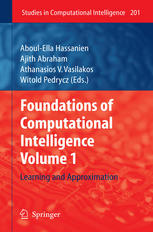
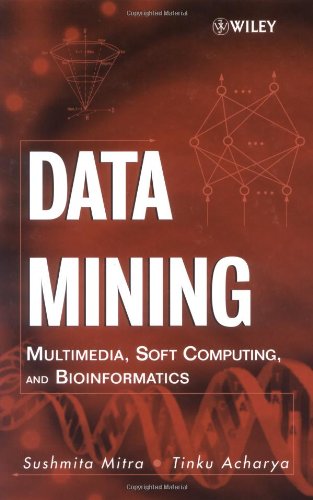
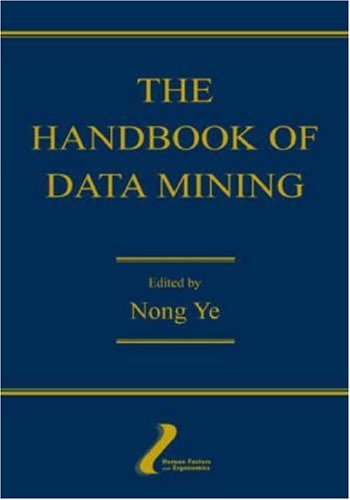
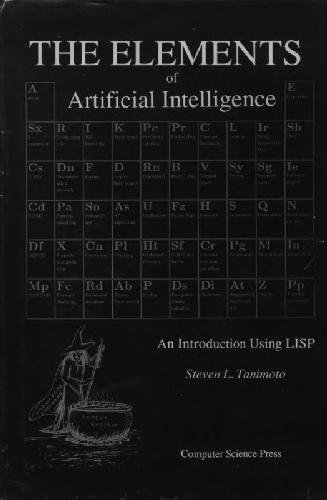


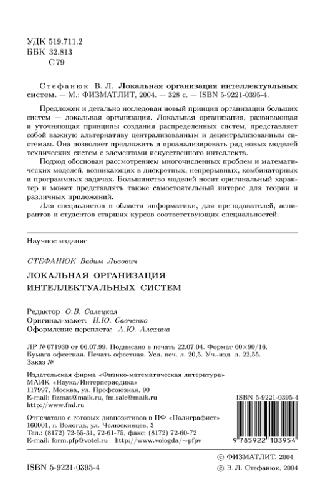
Reviews
There are no reviews yet.